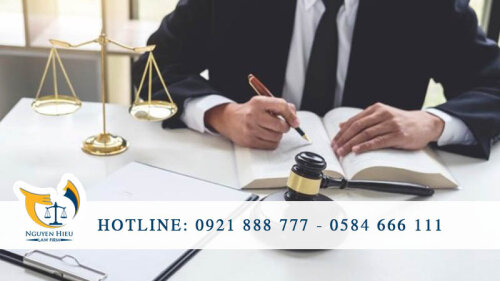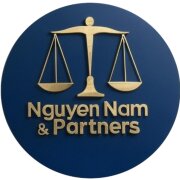Best Conveyancing Lawyers in Dong Nai
Share your needs with us, get contacted by law firms.
Free. Takes 2 min.
Free Guide to Hiring a Real Estate Lawyer
List of the best lawyers in Dong Nai, Vietnam
About Conveyancing Law in Dong Nai, Vietnam
Conveyancing refers to the legal process of transferring ownership of real property from one party to another. In Dong Nai, Vietnam, this process involves several steps and must strictly comply with national and local real estate laws. The main aim of conveyancing is to ensure that the buyer secures valid ownership rights to the land or property and that the transfer is completed legally and transparently. While some procedures are governed by national laws, Dong Nai also has specific administrative practices that may affect the conveyancing process, especially due to its rapid urbanization and industrial development.
Why You May Need a Lawyer
Legal assistance is often crucial when dealing with property transactions in Dong Nai. Common situations where you might need a conveyancing lawyer include:
- Purchasing or selling residential or commercial property
- Handling disputes related to property boundaries or ownership
- Transferring property between family members or inheritances
- Ensuring compliance with regulations regarding foreign ownership
- Drafting or reviewing purchase, sale, or lease contracts
- Investigating the legal status and title of a property before purchase
- Dealing with cases of land use right certificates (Red Book) issuance or transfer
- Addressing issues related to mortgages and property-related debts
A local lawyer can help you navigate the complex procedures and paperwork, avoid potential legal pitfalls, and protect your financial interests during the transaction.
Local Laws Overview
Conveyancing in Dong Nai is regulated by several national laws, such as the Law on Land 2013, the Law on Real Estate Business, and the Law on Housing. However, local regulations, guidance from the Dong Nai Department of Natural Resources and Environment, and administrative practices of local People's Committees also play a significant role. Key aspects include:
- Land Use Rights: In Vietnam, individuals and organizations do not own land but hold land use rights, which can be transferred, leased, or inherited.
- Red Book: The Land Use Right Certificate (often called the Red Book) is essential in any transaction. Verification of the red book is a critical step in the conveyancing process.
- Foreign Ownership: Foreigners face certain restrictions and conditions when purchasing property. It is particularly important to verify eligibility and compliance with relevant laws.
- Transaction Registration: All property transfers must be registered with the local Land Registration Office to be legally recognized.
- Taxes and Fees: Transactions are subject to various taxes and fees, such as personal income tax, registration fee, and administrative charges, which must be settled before the transfer is complete.
- Transfer Contracts: Sale and purchase agreements must be notarized according to local requirements to take legal effect.
Frequently Asked Questions
What documents are required for a property transfer in Dong Nai?
You typically need the land use right certificate (Red Book), personal identification documents of both parties, sale and purchase agreement, household registration book, and tax clearance certificates. Additional documents might be required depending on the transaction.
How long does the conveyancing process take?
The entire process usually takes a few weeks to several months, depending on the complexity of the transaction, completeness of documentation, and administrative workload at the relevant government offices.
Can foreigners buy property in Dong Nai?
Yes, but there are significant restrictions. Foreign individuals can generally purchase apartments and certain types of property, but not land. There are also limits on the number of units they may own in a building or development.
What are common risks in property transactions?
Risks include unclear ownership or disputes over boundaries, encumbrances or mortgages on the property, forged documents, or failure to comply with local administrative requirements. Legal advice can help mitigate these risks.
Do I need to have the sale agreement notarized?
Yes, notarization is mandatory for property transfer agreements in Vietnam. Notarization ensures the contract is legally valid and recognized by government authorities.
What taxes and fees do I need to pay?
Common taxes and fees include the registration fee (usually 0.5 percent of the property value), personal income tax (generally 2 percent), notary fees, and administrative charges.
How can I check if a property has legal disputes or encumbrances?
You can request information from the local Land Registration Office or engage a lawyer to investigate whether the property is involved in any disputes, mortgages, or planning restrictions.
Can I transfer property to family members?
Yes. Transfers between family members are allowed, but you must follow proper legal procedures and register the change in ownership. Some exemptions on taxes may apply for direct family transfers.
What happens if one party fails to meet their obligations?
If a party fails to comply with the agreement, the other side can seek remedies such as contract termination, compensation, or legal action through local courts, depending on the situation.
Where can I find official forms and guidance on the process?
Forms and detailed instructions are available at the Dong Nai Land Registration Office, local People's Committees, or can be obtained through a qualified lawyer or notary public.
Additional Resources
If you require more information or official guidance related to conveyancing in Dong Nai, consider the following resources:
- Dong Nai Department of Natural Resources and Environment
- Dong Nai Land Registration Office
- Notary Public Offices across Dong Nai Province
- Dong Nai Province People's Committee
- Local Bar Associations for lawyer referrals
- Judicial Support Centers in Dong Nai
- Vietnam Ministry of Justice for national regulations and guidance
Next Steps
If you need legal assistance with conveyancing in Dong Nai, the first step is to gather all relevant documents related to your property and intended transaction. Next, consult with a local lawyer who specializes in real estate law to discuss your specific circumstances and obtain tailored advice. They can help review documents, conduct due diligence, draft or review contracts, represent you during negotiations, and handle administrative procedures.
Additionally, you may wish to visit or contact the Dong Nai Land Registration Office or a notary public to inquire about current procedures, forms, and fees. Preparing your questions and documentation in advance will help streamline the process and avoid unnecessary delays or legal complications.
Lawzana helps you find the best lawyers and law firms in Dong Nai through a curated and pre-screened list of qualified legal professionals. Our platform offers rankings and detailed profiles of attorneys and law firms, allowing you to compare based on practice areas, including Conveyancing, experience, and client feedback.
Each profile includes a description of the firm's areas of practice, client reviews, team members and partners, year of establishment, spoken languages, office locations, contact information, social media presence, and any published articles or resources. Most firms on our platform speak English and are experienced in both local and international legal matters.
Get a quote from top-rated law firms in Dong Nai, Vietnam — quickly, securely, and without unnecessary hassle.
Disclaimer:
The information provided on this page is for general informational purposes only and does not constitute legal advice. While we strive to ensure the accuracy and relevance of the content, legal information may change over time, and interpretations of the law can vary. You should always consult with a qualified legal professional for advice specific to your situation.
We disclaim all liability for actions taken or not taken based on the content of this page. If you believe any information is incorrect or outdated, please contact us, and we will review and update it where appropriate.










